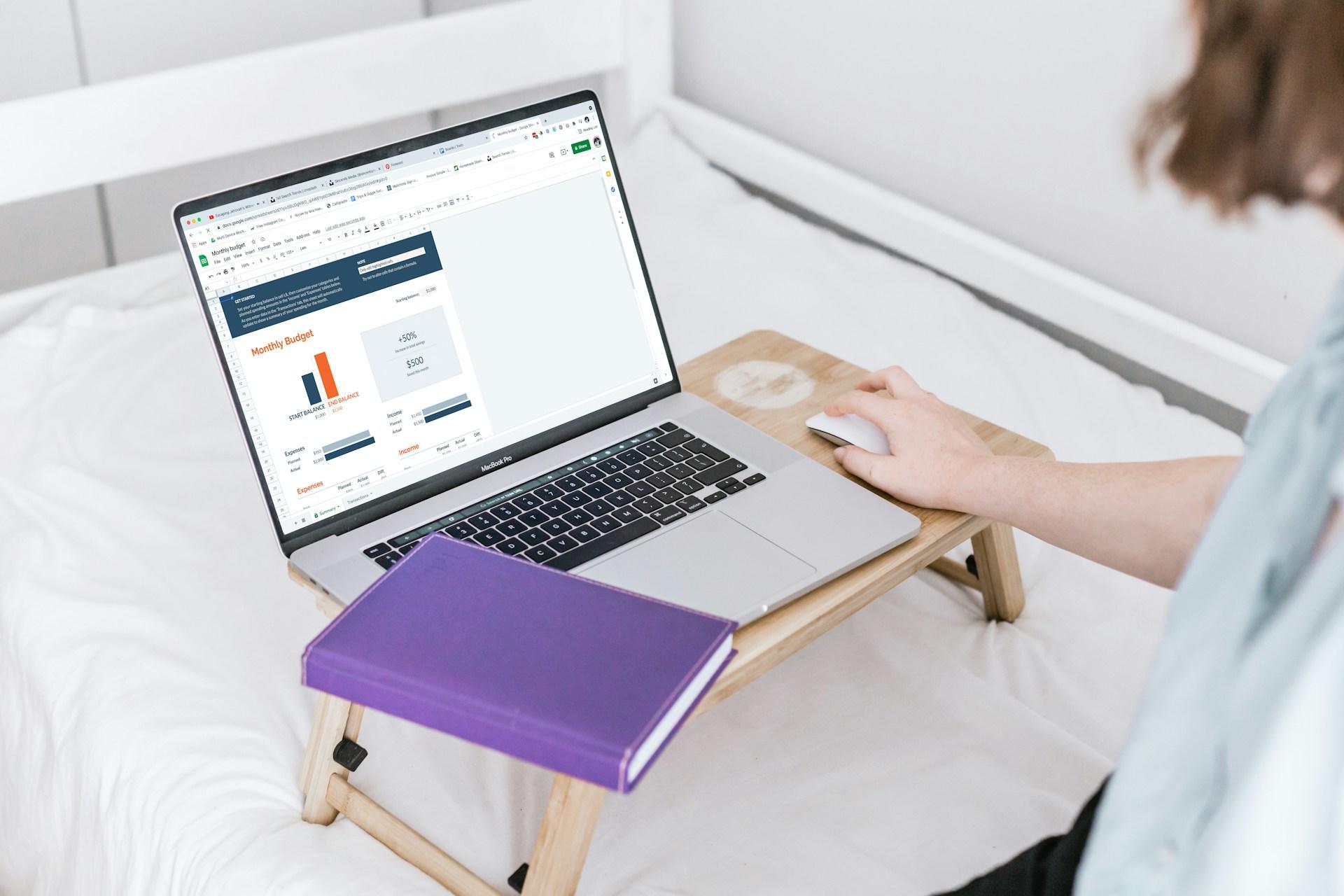Throughout your life, you’ve probably had some wise friends and family telling you that you should stick to a budget.
The budgeting process isn’t always something that is exciting, and while some people get a lot out of having an organized budget and monthly expenses list, others will find budget management to be a bit of a tedious task.
So why is it important to have a budget? Is it really going to be beneficial for you to sit down and create a spending plan?
As you probably already know, financial planning is an important part of life and it can make all the difference, helping you to pay for things you want, ensure you don’t end up in debt, and get through the months with all your essentials paid for.
Let’s dive into some of the best budgeting strategies and methods to keep your money under control. Even learning a few budgeting basics can make all the difference.

Why is a Budget Important?
Some fortunate folks with plenty of money behind them may not find budgeting as important, but the truth is that whatever financial situation you are in, a budget can almost always help. Huge companies create budgets, as do charities, and most sensible individuals. There are different types of budgets, of course, and yours will be based on household income and expenditure.
The benefits of budgeting can include:
- Reaching a goal: Budgeting allows you to allocate resources towards specific financial goals. Whether saving for a vacation, emergency fund, or major purchase, a budget provides a roadmap for achieving these objectives and getting to financial freedom. It transforms aspirations into tangible, achievable targets by breaking them down into manageable steps.
- Security and peace of mind: One of the key benefits of budgeting is the enhancement of financial security. By consistently saving and preparing for unexpected expenses through mechanisms like emergency funds, you build a financial safety net. This security helps navigate unforeseen challenges without jeopardizing your overall financial well-being.
- Control your outgoings: A well-structured budget helps you control your expenses by setting limits for different categories. This prevents overspending and encourages disciplined financial behavior. With a budget, you can allocate resources efficiently and prioritize essential expenses.
- Make better decisions: This awareness enables you to make informed decisions, identify spending patterns, and understand where your money is going.
The Basics of Budgeting: How to Create a Budget
Whether you’re looking for budgeting tips for young adults or you need tips for a whole family, the structure and bare bones of the budget will likely be the same.
Let’s first explore the practical steps for creating your budget.

Assess Your Income
Start by determining your total monthly income. Include your salary after tax, any additional sources of income, or irregular income such as bonuses (but only if you know you’re going to receive them). A comprehensive understanding of your income is crucial for creating an accurate and realistic budget. If you’re a family, consider all of your household incomes.
Evaluate Fixed Expenses
In personal budget categories, there are a few different types of expenses including fixed expenses. Identify and list your fixed expenses, which are regular and consistent payments that do not fluctuate significantly each month. This may include rent or mortgage payments, utilities, insurance premiums, and loan payments. Fixed expenses are typically essential and not things you can just stop paying.
Loan repayments are also fixed expenses, assuming they are a monthly outgoing. When you budget by paycheck, you should ensure you calculate income on a monthly basis if this is how you are paid.
Evaluate Variable Expenses
Categorize and account for your variable expenses, which may vary from month to month. Examples include groceries, dining out, entertainment, and transportation costs.
Track your spending patterns over a few months to estimate average amounts for variable expenses. This can be the bit that some people find frustrating. If you don’t want to track spending for months manually, check if your bank allows you any budgeting tools, or whether you can go back through your records.
Alternatively, a budgeting app can help you to work out what you are spending and enter daily payments or average payments so you know what is leaving your account.
Establish Your Savings

Allocate a portion of your income to savings and debt repayment. Establish a savings goal and prioritize contributing to an emergency fund. Simultaneously, plan for the repayment of outstanding debts, focusing on high-interest obligations to minimize interest expenses over time.
Budget Categories and Subcategories
When you are creating a budget, it may help you to create different categories, which can help you to understand where money is going. Organize your budget into categories and subcategories to enhance clarity.
Common categories people use in their budgets include housing, utilities, transportation, groceries, debt repayment, savings, and other forms of spending such as entertainment. Subcategories within these can provide a more detailed breakdown, aiding in better financial management.
A lot of people create spreadsheets for budget management and some budgeting strategies require you to properly understand the different categories of expenses.

Budgeting Tips
There are so many different types of budgeting tips, and these vary depending on whether you want to create a budget for an individual or for families.
Be Realistic When Setting Budgets
Assign specific dollar amounts to each budget category based on your income and financial goals. Ensure that these limits are realistic and aligned with your overall financial objectives. Strive for a balance that allows for necessary expenses while still leaving room for savings and other spending. You might be creating a budget for the month and think you can get by with $100 worth of food, but this is probably not the case. Use data from previous months to work out what you will actually need.
Try to Create an Emergency Fund
One of the top money saving tips for anyone is to have an emergency fund. You never know when your car will break down or you will suddenly have to pay an unexpected vet bill.
Incorporate an emergency fund contribution into your monthly budget. This ensures that you consistently set aside money for those pesky unexpected expenses, providing financial security and preventing the need to dip into other allocated funds in times of crisis, or worse, having to borrow for the unexpected costs.
According to a Nerdwallet Survey, close to half of Americans (48%) say they want to prioritize emergency savings. Other popular financial priorities for Americans are investments (36%) and retirement planning (35%).
Consider Your Financial Goals
What do you want to achieve? Are you saving for multiple things? Align your budget with your short-term and long-term financial goals. Whether it's saving for a vacation, building an emergency fund, or investing for retirement, ensure that your budget reflects the priorities that will contribute to your overall financial well-being.
There are plenty of people out there who don’t have a great deal left over after paying for essentials, but saving some money towards a goal can make a big difference over time.
Review and Alter the Plan
At the end of each month, conduct a thorough review of your budget. Analyze your actual spending versus the budgeted amounts and reflect on any deviations. Learn from your experiences and use this information to refine and improve your budgeting skills in the future. Regular reflection enhances your financial awareness and helps you make more informed decisions.
Consider enrolling in financial classes near me to significantly boost your financial literacy. A personal finance class will help you improve your money management skills, providing you with essential knowledge on budgeting, saving, and investing. You'll gain valuable insights into financial planning and strategies for achieving long-term financial security, empowering you to make informed decisions and build a stable financial future.
Budgeting Tools

If you want to create a budget, you don’t have to start from scratch. There are plenty of tools out there that help you to create a budget complete with different categories and tips on things to budget for and more!
- Budgeting apps: This has become a popular way to budget from one month to the next. YNAB (You Need a Budget) is one of the most popular apps that people can use.
- Bank tools: Some of the online banking tools out there have different tools that allow you to budget more easily, and may even use the data from your accounts to show you what your outgoings are.
- Budget templates and spreadsheets: There are plenty of spreadsheets out there other people have created, which can help you a great deal when you are looking to create your own budget, as you’ll just have to enter the figures and tweak the spreadsheet slightly.
- Budgeting books: For the old-school people out there, you can do your calculations with pen and paper. There are budget notebooks and spreadsheets out there allowing you to fill in your budget manually. The downside is that you’ll have to do calculations manually or elsewhere, but the upside is the fact that it is easier to remember things when you have written them down.
Invest in Your Financial Skills
So, if you were wondering what budgeting tips would help you to stay on track financially, wonder no longer.
Budgeting isn’t everyone’s idea of a great time, but the impact it has on your finances makes it more than worthwhile, and an effective budget can show you the way to save more, cut expenses, and be far more sensible with your income as you plan for a bright future.
At Superprof, a variety of financial online classes are available to help you with your budgeting skills and personal financial goals. All you need to do is head over to the Superprof website, type in your location and finance in the subject box, and then a vast array of tutors will be available for you! Discover your ideal match by exploring ratings and reviews, and embark on a journey to enhance your understanding of personal finance today!
Summarize with AI:
















